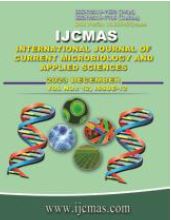


 National Academy of Agricultural Sciences (NAAS)
National Academy of Agricultural Sciences (NAAS)

|
PRINT ISSN : 2319-7692
Online ISSN : 2319-7706 Issues : 12 per year Publisher : Excellent Publishers Email : editorijcmas@gmail.com / submit@ijcmas.com Editor-in-chief: Dr.M.Prakash Index Copernicus ICV 2018: 95.39 NAAS RATING 2020: 5.38 |
1Chemistry Study Program, Faculty of Mathematic and Natural Sciences, Udayana University, UNUD Campus Street, Jimbaran, Bali - 80361, Indonesia
2Food Science and Technology Study Program, Faculty of Agricultural Technology, Udayana University, UNUD Campus Street, Jimbaran, Bali - 80361, Indonesia
The germination process is one way to improve the quality of legume protein, which will be used as a substrate in the production of protein hydrolysate. This study aims to hydrolyze pigeon pea (Cajanus cajan (L.) Millsp.) sprout protein concentrate by using alcalase enzymes to obtain protein hydrolysate which has the potential to generate a savory or umami taste. The research began with total protein extraction to generate pigeon pea sprout protein concentrate which was then used as a substrate in the hydrolysis process treated with variations ratio of the Enzyme to the Substrate (E/S ratio). Each protein hydrolysate obtained was characterized based on free α-amino content, soluble protein content, and sensory evaluation of the savory taste level. Protein hydrolysis results in the range of E/S ratio 0.1% - 1.5% showed that the E/S ratio 1.5% was able to produce the highest content of free α-amino (2.95±0.08 mg/mL) and soluble protein content (13.69±0.11 mg/mL). Besides that, the highest sensory evaluation score was obtained in the E/S ratio of 1.0%. This result shows that the protein hydrolysate of pigeon pea sprouts can be used as a natural flavor.
 |
 |
 |
 |
 |